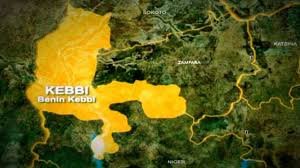The United Kingdom government has executed a deportation operation, removing 44 Nigerian and Ghanaian nationals from the country in a single flight on Friday, 18 October.
This mass deportation marks a substantial increase in the scale of such operations, as reported by The Guardian.
According to data obtained under freedom of information rules, deportation flights to Nigeria and Ghana have been infrequent in recent years.
Since 2020, only four such flights have taken place, with the number of deportees ranging from six to 21 individuals per flight.
Friday’s operation, however, more than doubled the previous highest number of deportees on a single flight.
A spokesperson for the UK Home Office confirmed this action as part of a “major surge” in immigration enforcement and returns activities.
The official stated, “We have already begun delivering a major surge in immigration enforcement and returns activity to remove people with no right to be in the UK and ensure the rules are respected and enforced, with over 3,600 returned in the first two months of the new government.”
This large-scale deportation comes amid changes in UK immigration policy, particularly concerning asylum seekers.
Recently, the British government reached an agreement to eventually hand over the Chagos Islands, an archipelago in the Indian Ocean, to Mauritius.
This deal includes a provision that asylum seekers arriving in Diego Garcia before the finalization of the treaty will be sent to Saint Helena, a remote British territory in the Atlantic Ocean.
The Guardian spoke with four Nigerian deportees before their removal from the Brook House immigration removal centre near Gatwick. Their accounts reveal a range of distressing circumstances:
One deportee described becoming traumatized after witnessing a cellmate’s suicide attempt.
Another expressed frustration over the Home Office’s rejection of his asylum claims after 15 years of residence in the UK without a criminal record.
A third individual reported that his claim was denied despite being a victim of trafficking and showing childhood torture scars to Home Office officials.
The fourth deportee recounted unsuccessful attempts to secure legal representation to challenge his removal directions.
Fizza Qureshi, chief executive of Migrants’ Rights Network, expressed shock at the news of the deportations.
Qureshi, who had been in contact with some of the deportees before their removal, stated, “We are extremely shocked at the cruelty of these deportations, especially with the speed, secrecy and the lack of access to legal support.”
Qureshi further relayed the words of one detainee: “The Home Office is playing politics with people’s lives. We have not done anything wrong other than cry for help.”






















